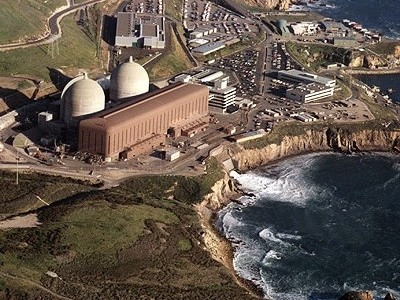nuclear power
Energy Policies Worthy of Debate
Ten questions to ask Clinton and Trump about energy policy.
As we enter the brief debate season prior to the presidential elections, it is easy to anticipate that we won’t see much time set aside for discussing energy policy. That’s not the case for the graduate students in an energy policy class I am currently teaching at the Goldman School of Public Policy. Last week, …
Continue reading “Energy Policies Worthy of Debate”
CONTINUE READINGThe End-game for Diablo Canyon?
A landmark agreement supports the closure of a controversial nuclear plant.
Today’s announcement that the Pacific Gas & Electric Company (PG&E) has reached an agreement with several environmental and labor groups to plan for the eventual shutdown of the Diablo Canyon Nuclear Plant is a stunning development, when viewed in an historical perspective. PG&E has agreed not to seek new licenses for its power plant that …
Continue reading “The End-game for Diablo Canyon?”
CONTINUE READINGRisk Subsidies and the Future of Nuclear Power in the U.S.
Should We Take Into Account Government Subsidies that Reduce the Risks Borne by the Nuclear Industry as We Consider Our Energy Future?
As I’ve written about before, U.S. law massively subsidizes the nuclear power industry. In particular, a law called the Price-Anderson Nuclear Industries Indemnity Act dramatically skews the incentives to develop nuclear plants, and to site them in places where there is a lot of risk, because it requires the public to bear much of the …
Continue reading “Risk Subsidies and the Future of Nuclear Power in the U.S.”
CONTINUE READINGThe Future of the Diablo Canyon Nuclear Plant
A group of scientists, philanthropists, and self-identified conservationists weighs in.
The role that nuclear power could or should play in helping to mitigate greenhouse gas emissions is worthy of serious debate, but the latest nuclear-related front-page story in the San Francisco Chronicle is a head-scratcher. Above the fold, the headline reads “Nuclear plant’s surprise backers,” followed by the following subheading: “Environmentalists push for Diablo Canyon …
Continue reading “The Future of the Diablo Canyon Nuclear Plant”
CONTINUE READINGTen Energy Stories to Watch in 2014
What will shake the energy world this year?
In our energy law classes at Cal, we like to start the day by talking about Energy in the News. The media never fails us. Every day, there are multiple energy-related stories of significance touching on resource development, new technologies, policy shifts, jobs, regional politics, prices, international relations, or the environment. Once you start looking …
Continue reading “Ten Energy Stories to Watch in 2014”
CONTINUE READINGMore Idiocy from the Wall Street Journal Op-ed Page
A few years ago, a friend of mine suggested starting a blog entitled something like, “Why The Wall Street Journal Editorial Page Was Idiotic Today.” You’d never run out of material for posts! Certainly that was the case today, as Senator Lamar Alexander and Representative Mike Pompeo, both Republicans, make a case against the wind …
Continue reading “More Idiocy from the Wall Street Journal Op-ed Page”
CONTINUE READINGFukushima Whodunit
In a remarkable and significant new report, Japanese experts have concluded that the Fukushima nuclear accident was a “man”-made disaster – phrased this way perhaps in a gallant effort to allow all women to distance themselves from the decision making process. This dramatic conclusion prompts yet another question: If “man” isn’t responsible, then who is? …
Continue reading “Fukushima Whodunit”
CONTINUE READINGMore Trouble at Fukushima
According to the Washington Post, the situation inside the reactors is grim. Tuesday’s examination with an industrial endoscope detected radiation levels up to 10 times the fatal dose inside the chamber. Plant officials previously said more than half of melted fuel has breached the core and dropped to the floor of the primary containment vessel, …
Continue reading “More Trouble at Fukushima”
CONTINUE READINGA Post Script to Steve’s Post about the Nuclear Renaissance
This just in from the NY Times: The Nuclear Regulatory Commission said a June breaker fire at the 478-megawatt Fort Calhoun nuclear plant was of “high safety significance,” increasing work the Omaha Public Power District (OPPD) must complete before the troubled unit can restart. The NRC’s preliminary “red” safety violation, the agency’s most serious classification, …
Continue reading “A Post Script to Steve’s Post about the Nuclear Renaissance”
CONTINUE READINGBetting on the Nuclear Renaissance
For many years, there has been a healthy debate in the United States about the role nuclear power should play in our future energy plans. In the energy law courses that I teach, I have been struck with the consistent support among students for expanding our reliance on nuclear power as part of a comprehensive …
Continue reading “Betting on the Nuclear Renaissance”
CONTINUE READING






